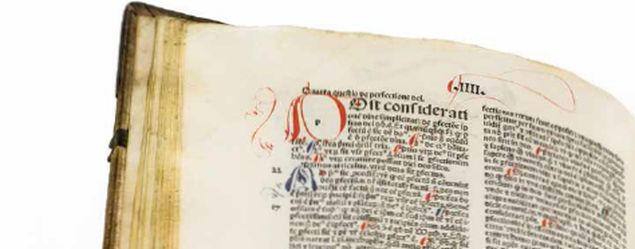
Commentaries on the Exhibit’s Works
Files
Download Commentary (162 KB)
Description
excerpted from Printing and the Mind of Man (1983), on the following work:
Plato
Opera omnia (Complete Works)
Venice: Aldus, 1513; second printing
Permission Statement
This item and all others in the Imprints and Impressions collection are licensed for research, educational and private use. Proper attribution must be used when downloading or reproducing this content. If you wish to use the materials for other purposes, please contact University of Dayton Libraries to obtain permission: 937-229-4221.




Comments
Plato (428–347 BC) was the first of all the ancient philosophers to be translated and broadcast by the printing press. His central conception of a universe of ideas, of which material objects are imperfect forms, and his ethical code based on action according to human nature, developed by education … fit with the philosophical, religious, and political thought of Western Europe in the fifteenth century. Known as the most fertile of philosophic writers, Plato, student of Socrates, infused his dialogues with two dominant impulses: a love of truth and a passion for human improvement. While nowhere is a definite system laid down, it has been truly said that the germs of all ideas can be found in Plato.
The Opera seen here is the first edition of Plato’s complete works in Greek.